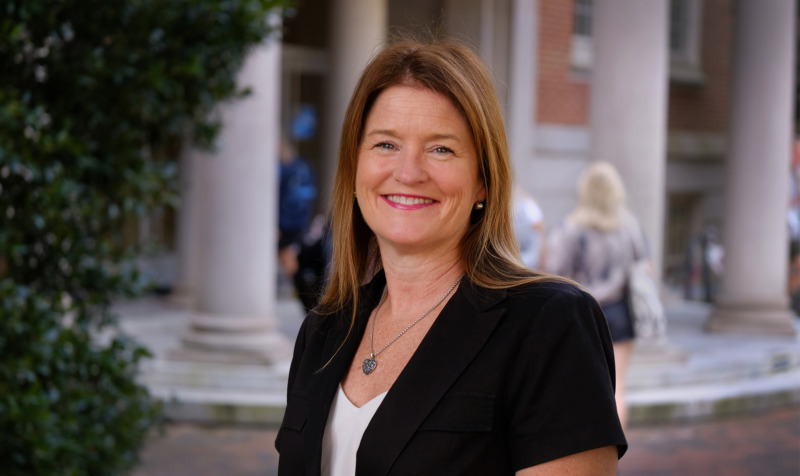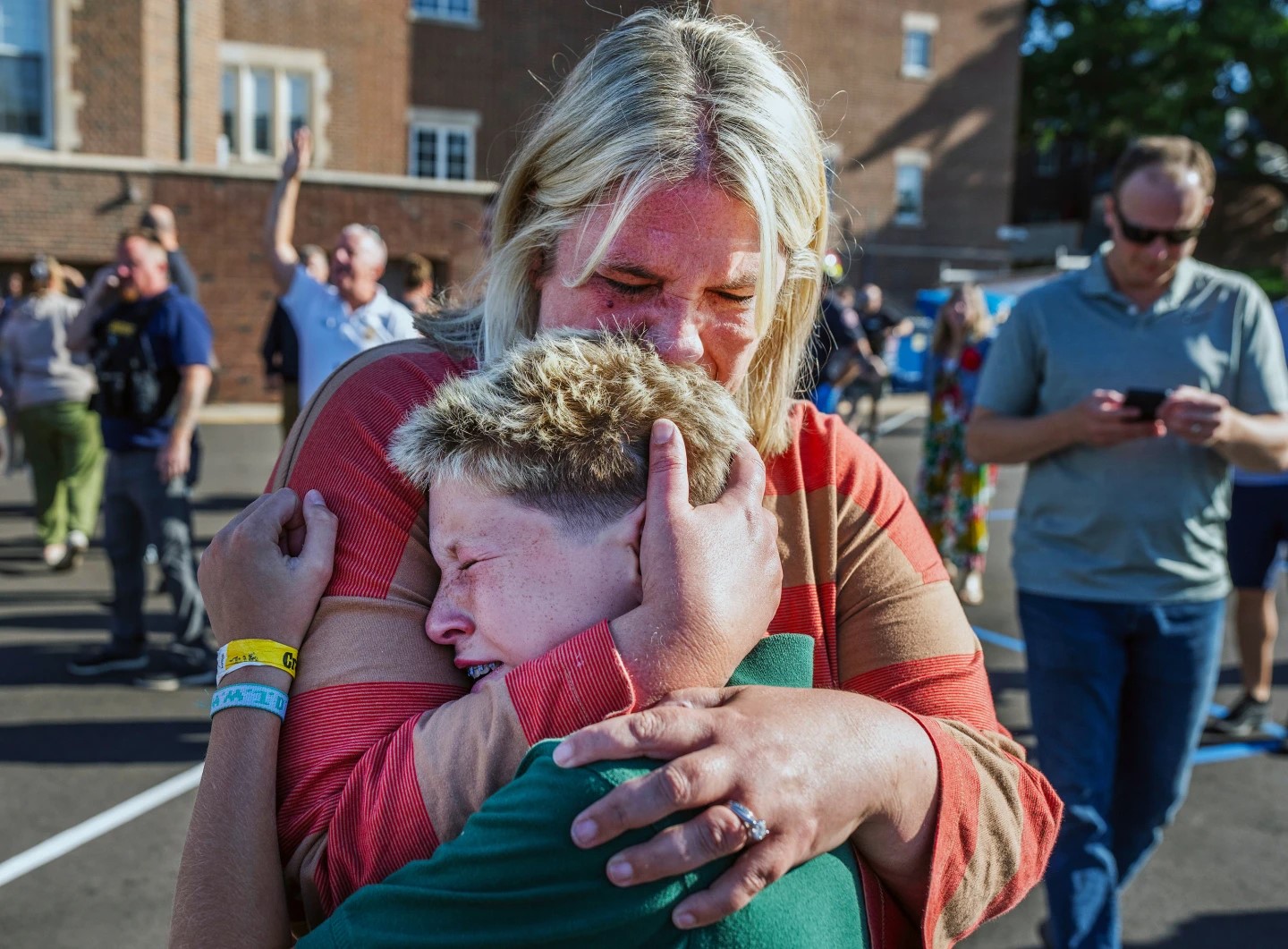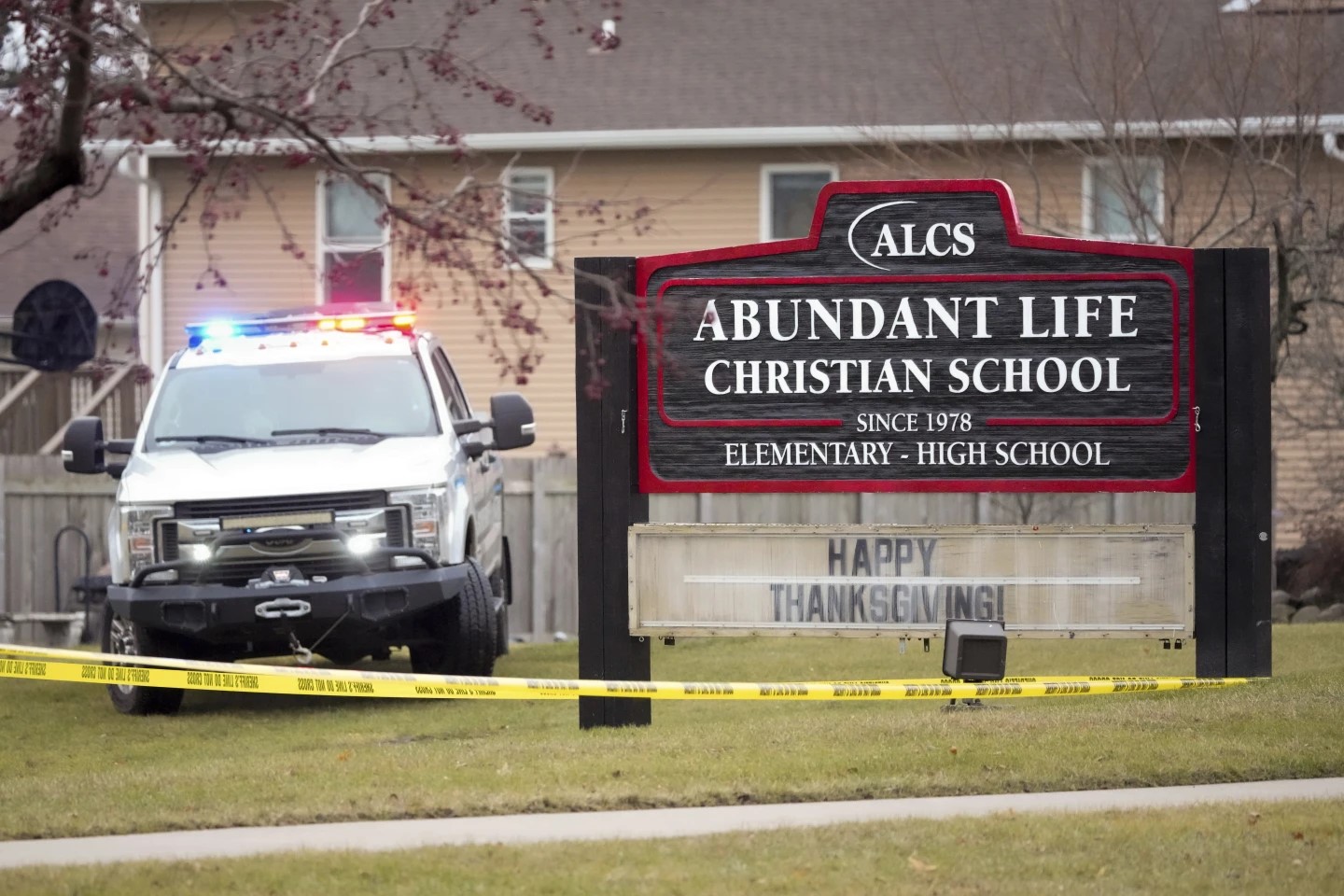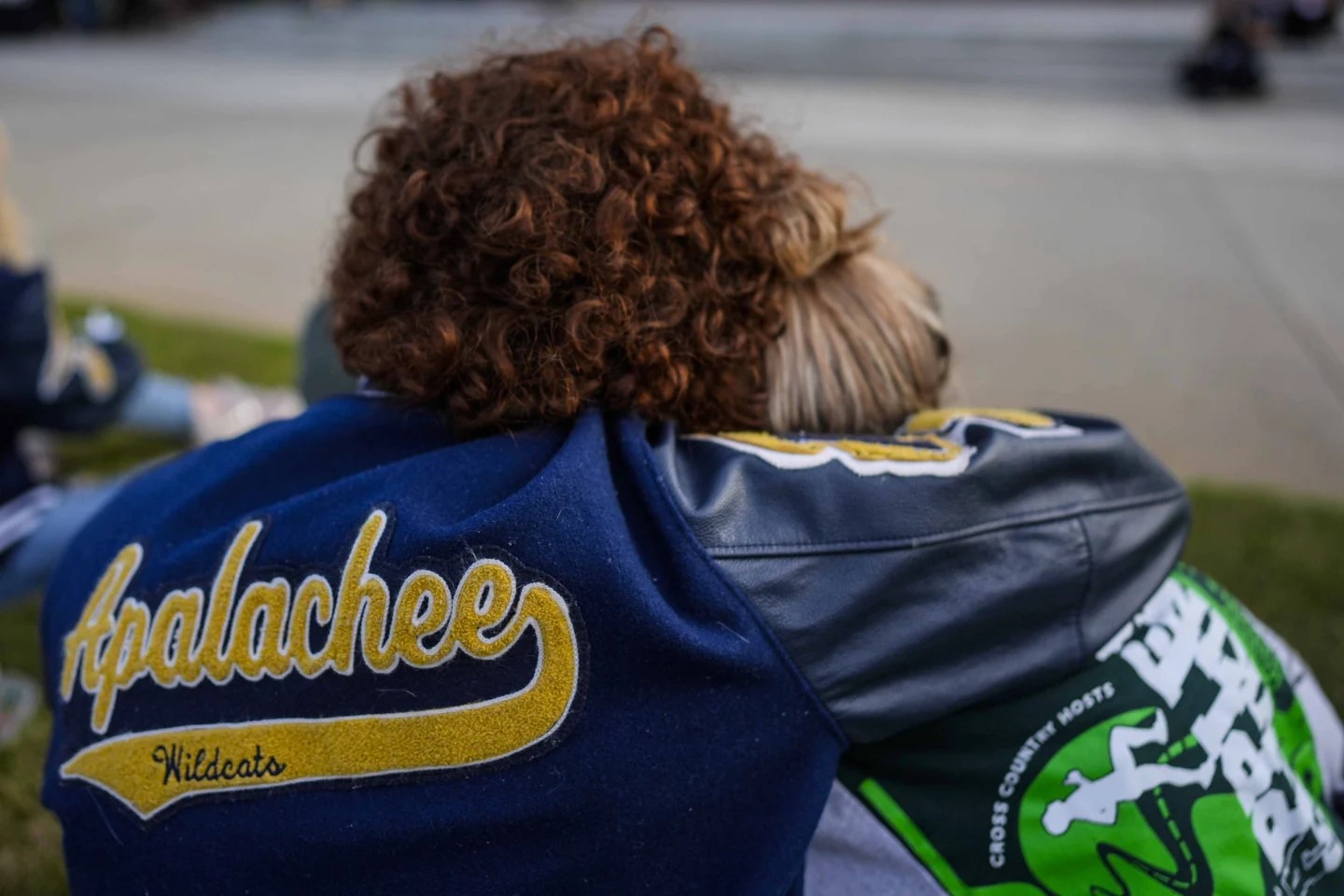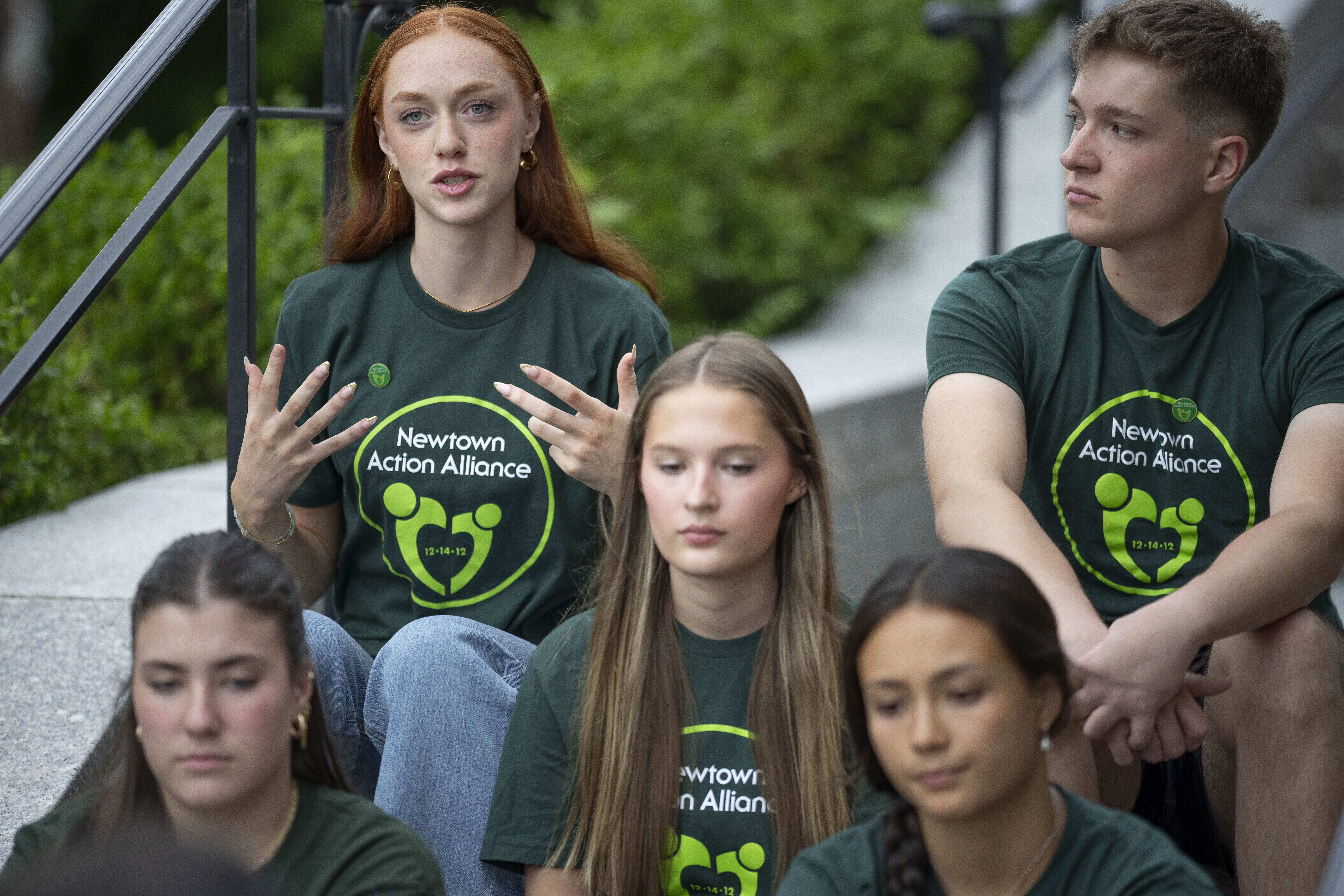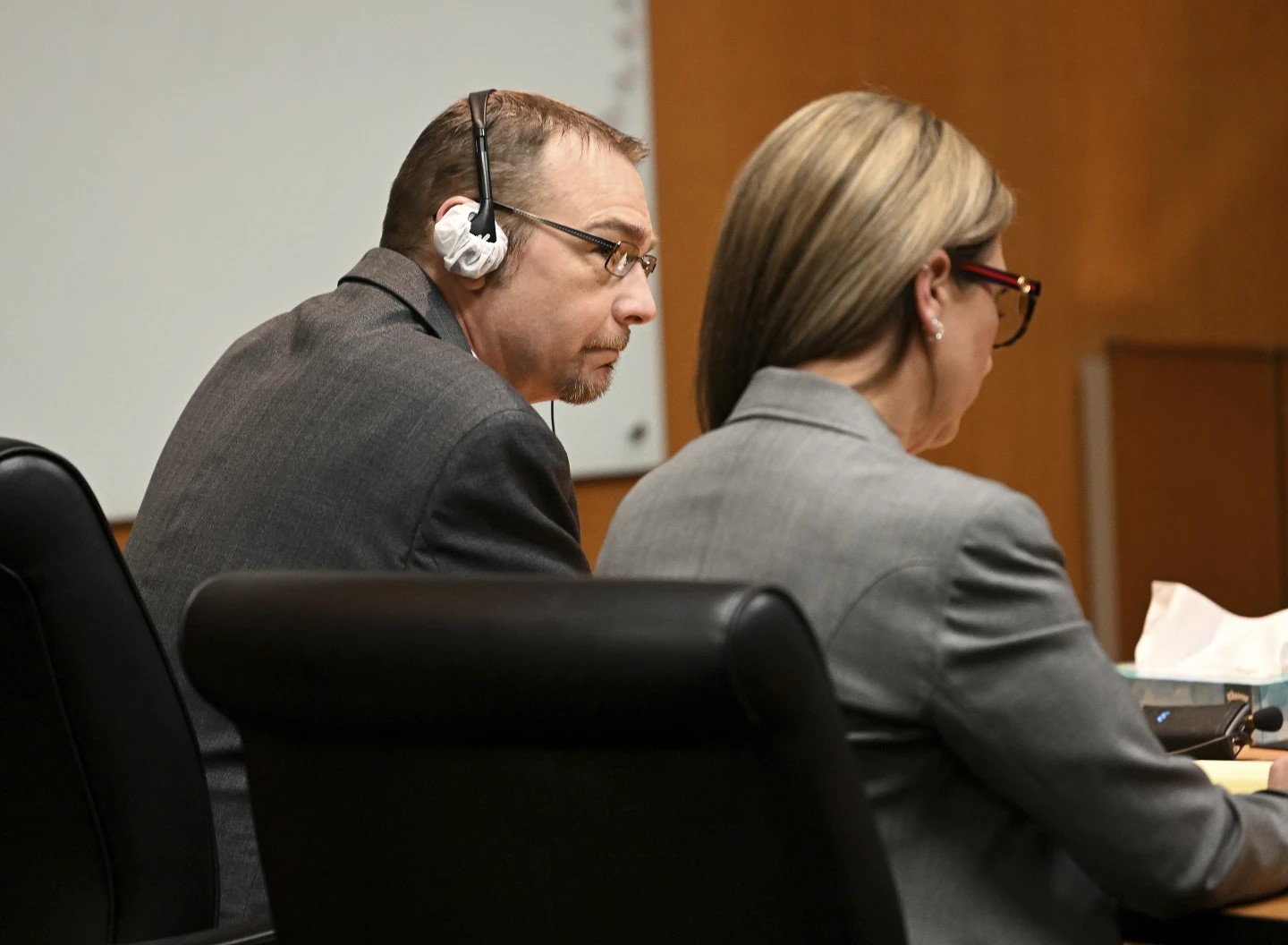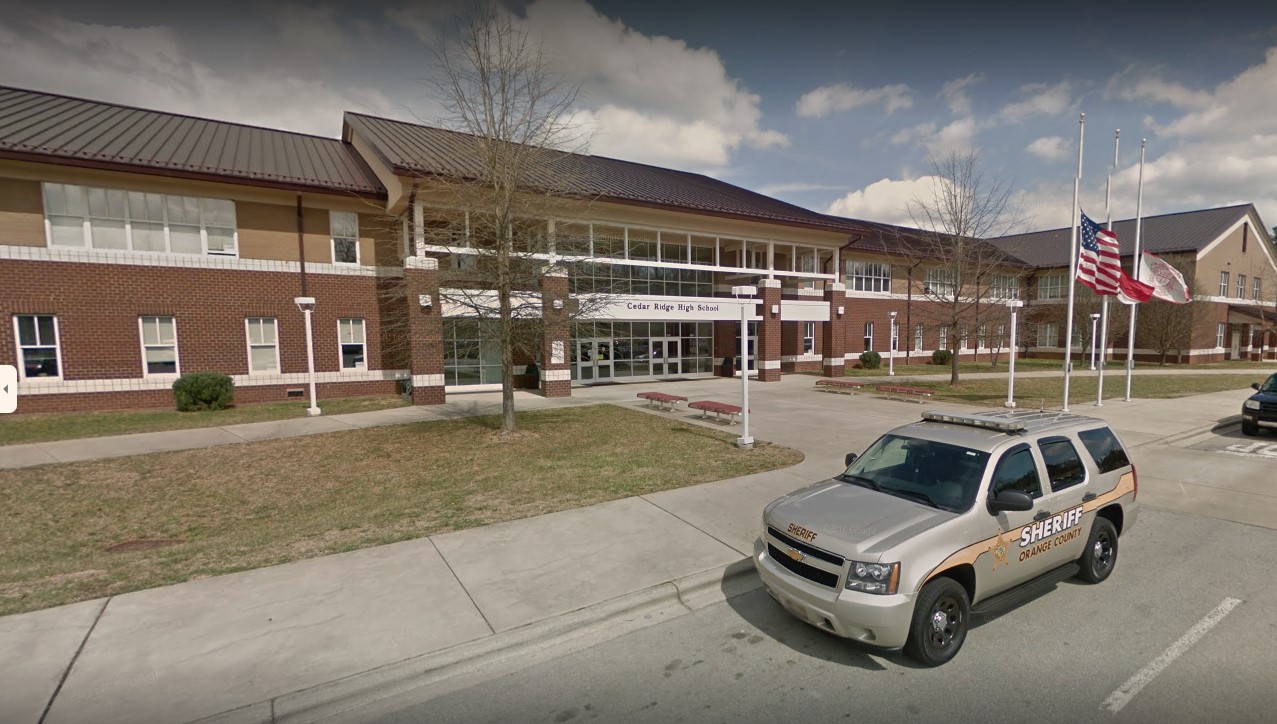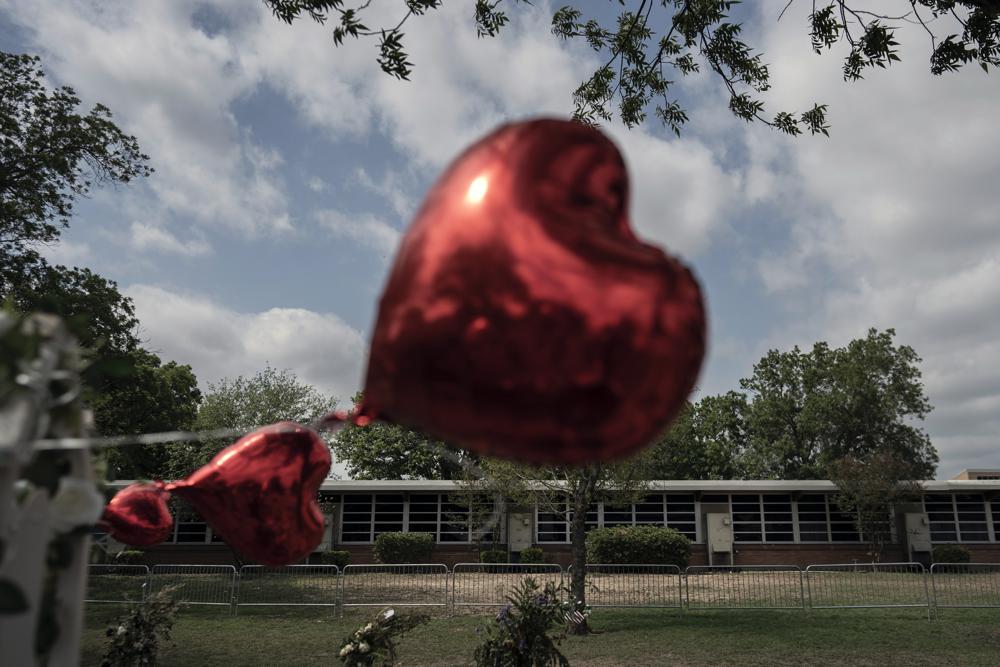In the aftermath of Tuesday’s elementary-school shooting, all of us, adults and children alike, are struggling to process our feelings and find positive ways forward. That’s something many of us were already struggling with in the first place, particularly in the midst of the pandemic.
That constant struggle can make us feel like shutting down. But research tells us that shutting down can exacerbate the conditions that lead to mass shootings in the first place.
So how can we break the cycle? How can we help our kids? And how can we help ourselves?
97.9 The Hill’s Aaron Keck spoke this week with Dorothy Espelage, a professor of education at UNC whose research focuses on violence prevention in the schools.
Listen to their conversation.
Aaron Keck: What do we know about the impacts of school shootings and school violence on kids? I’m not even talking about kids necessarily who are in those schools – but kids in schools that are not directly affected by a particular incident are still dealing with the trauma of it and trying to process it and work through it. And it’s affecting their life and their environment as well. What do we know about the impact that has?
Dorothy Espelage: For the kids in schools now, unfortunately school shootings are something that they’ve grown up with. They’re very familiar with it, it’s become a norm. I’ve been studying bullying and school shootings and violence in K-12 settings for 25 years. But when I went to school, we didn’t think about school shootings.
I think that this is on the minds of parents, it’s on the minds of administrators and teachers, and the kids themselves. My team here from Chapel Hill, we’re in elementary schools, we’ve been there all week, hanging out with third through fifth graders, and it’s on their minds and they’re talking about it. And until we figure out why it is that this is something that kids have to deal with, we have to talk to them. And I appreciate the superintendents putting out these statements, because parents are at a loss.
So how do I talk to my kids? They can’t escape it. Kids have cell phones, they have social media, they’re hearing things. And they’re scared. We were in schools (the day after the shooting), there was a number of kids absent. Parents just decided not to send their kids to school, (thinking) the best way to keep your child protected is to keep them at home.
Keck: So when we’re having that conversation with kids – how do you begin to have that conversation? Because I think starting it has got to be one of the hardest steps.
Espelage: It is the hardest. And I think some parents are going to avoid that. What I say to parents is, don’t avoid it. Because they’re going to get information from their teachers and administrators or their peers, or it’s all over social media, right? If you have your radio on, in the car, when you’re taking the kids to school, they’ll hear it. So don’t avoid it. Limit their exposure, but at the same time, try to highlight the protection, right? When kids ask their parents, “can this happen to me? Can it happen at my school?” The reality is – it could. But we need to focus on the positive, what we’re doing to create that safety.
Because in reality – and this is not what parents want to hear, especially those in Texas right now – (but) we’re safer in schools than we are in some other locations. Going out to eat, for example. The data are clear on that. It doesn’t feel as if that’s the case, but it is. That’s the reality. So focus on that positive nature.
Now, some kids are not going to want to talk about it, because they already have a predisposition to be anxious themselves. But I also say to parents, that’s okay, allow them to process it in other ways. And parents need to watch their own reactions, right? We can’t come in looking as if we’ve just been distressed and been crying all night and upset. So parents, if they need to, just take a moment. Because kids will watch how their parents are reacting – and if we’re overly anxious, if we’re upset ourselves, the kids will mimic that in so many ways.
Keck: You’ve touched on that cycle of anxiety and negativity that we can get into – and it’s a really hard cycle, once you’re in, to pull yourself out of. You start feeling anxious, you turn to social media, you get misinformation – or actual information that’s just very negative – and it feeds on itself. So if we find ourselves doom-scrolling, if we find ourselves in that cycle, what can we do to pull ourselves out of it?
Espelage: Distract yourself. Go for a walk. Turn off the TV. Turn off your cell phone. Because we have to take care of ourselves. And I think we have to support one another, not to co-ruminate, right? A lot of adolescents, middle school and high school students will co-ruminate around the subject. We just have to disengage to a certain extent. It’s not forgetting, it’s self care.
Keck: On a policy level, what resources would you say need to be in the schools to help kids with their mental health, to help kids get through situations like that? And to what extent do those resources actually exist in the schools right now?
Espelage: You know, I’ve studied school violence for 25 years. And what I’ve seen over the last 25 years is (that) increasingly, we have more isolated kids. There are more compromised relationships between teachers and students, especially during COVID. Certainly having the security (is important), and that sense (that) the school is protecting them – but what it comes down to is relationships.
So teachers, now, at the end of the school year, check in with those kids. How do we minimize the isolation that can contribute to the things that we’re seeing? This particular shooting is no different than the others – it really comes down to the lack of positive relationships. So pay attention, take the time, let’s connect. Twenty percent of middle school and high school students do not have a significant relationship with an adult in the school. That’s a problem. And that’s what keeps me up at night. If we do not continue to foster positive relationships – and I understand (the importance of) academics and testing – but the reality is, every kid that steps in our schools in K-12 settings has to have a relationship with an adult, a role model that’s positive. And that’s what we need to focus on and try to understand.
As a child in our K-12 settings, you do not have to have a lot of friends. You need one significant adult that you can turn to when you’re upset. You need one friend that you can confide in when you have issues. And that’s what we need to talk about: positive school climate and connectedness. That’s how we’re going to achieve the academics we want. That’s how we’re going to create a workforce that’s positive. It’s all about finding that isolated kid and figuring out what they need psychologically.
Keck: I think this question is going to pick up right from what you just said – but your research also focuses on violence prevention in the schools. What steps need to be taken, to prevent situations like this from happening?
Espelage: Well, I think we need to start doing violence prevention. We’re not doing violence prevention now in our schools, (not) since COVID. A lot of administrators are just focused on trying to find the kids. We still have kids that are not back in the classroom.
There has to be space for Social Emotional Learning (SEL) and competencies. But in many states across the country, we’re not doing violence prevention. There is no Social Emotional Learning. The focus is on trying to just get through the year. It’s been a tough couple years. But when we come back in the fall, I would hope that all the superintendents and administrators that are reading this (understand) that you have to make space for Social Emotional Learning, and other types of programming to prevent violent and build positive relationships. Because it’s absolutely not happening across the country.
Keck: What else should parents know? What else should teachers and administrators know?
Espelage: Just keep talking. Keep talking. Ask them what they need. And check yourself. We as adults should have the best coping strategies. We need to model that for the kids, because they’re not necessarily learning how to manage basic day-to-day kind of stressors. And this stressor is a big one. So continue to talk, to be the best adult role model you could be – and build those positive relationships.
Photo of Dorothy Espelage via the UNC School of Education.
Chapelboro.com does not charge subscription fees, and you can directly support our efforts in local journalism here. Want more of what you see on Chapelboro? Let us bring free local news and community information to you by signing up for our biweekly newsletter.

